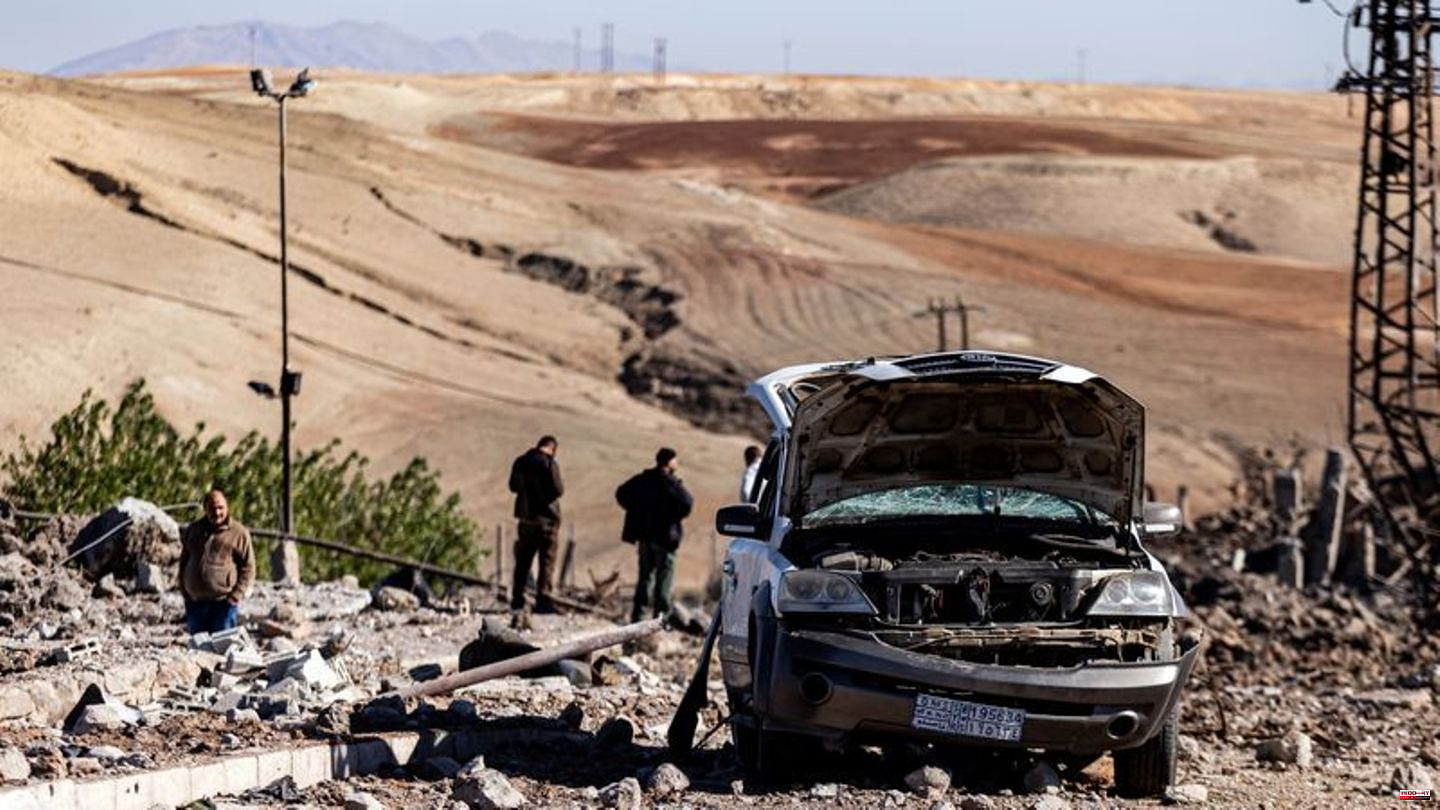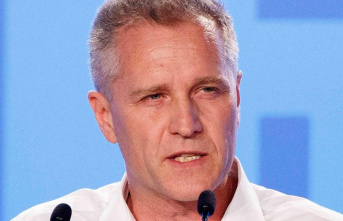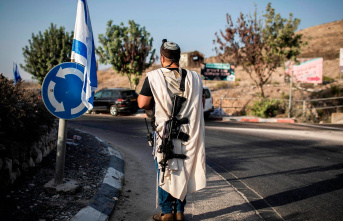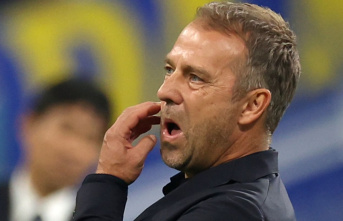Turkey has been using airstrikes against Kurdish militias in northern Syria and northern Iraq for days. Dozens of people died. Russia and the USA, which control parts of the Syrian airspace as important parties in the Syrian civil war, had warned of the long-announced offensive. At the same time, Iran is also attacking Kurds in northern Iraq. How is it all connected and who benefits? An overview.
Why is Turkey attacking now and for what purpose?
Turkey calls its attacks on Kurdish militias in Syria and Iraq "retaliation" for an attack on November 13 in Istanbul that killed six. She blames the Syrian Kurdish militia YPG and the banned Kurdish Workers' Party PKK for this. The official account is doubted. Some observers suspect electoral tactics behind the attacks on Kurdish positions, which could bring the government votes from the nationalist electorate. After four earlier military offensives, Turkey already occupies border areas in northern Syria. Kurdish militias also control large parts of the north of the civil war country. Experts suspect that the Turkish government's goal could be to oust them there and bring a wide strip of the border completely under Turkish control.
What is the background of the conflict?
Thousands of people have been killed in the decades-old conflict between the PKK and the Turkish state. Ankara regularly conducts military operations against the PKK in south-eastern Turkey and northern Iraq. This, in turn, repeatedly carries out attacks, especially on Turkish security forces. But civilians are also killed. Turkey accuses the PKK of endangering national security and unity with terror. The PKK argues that, among other things, it is fighting for the "rights of the Kurds" and against oppression. In 2015, a peace process between Turkey and the PKK failed.
Why is Iran attacking the Kurds too?
It is unclear whether there is a connection between the two countries' simultaneous attacks on Kurdish positions in northern Iraq in the past few days. While Turkey began its offensive on Sunday, Iran's loyal Revolutionary Guards (IRGC) have been attacking Kurdish targets in the neighboring country with rockets and drones for weeks. Experts see this primarily as a domestic policy calculation. After the Iranian Kurd Jina Mahsa Amini died in police custody in mid-September, demonstrations spread like wildfire from the Kurdish regions. These are the worst protests in the country in decades. Fear of separatist movements is also growing in Tehran. Security forces are particularly brutal against demonstrators in the Kurdish parts of the country.
How is Russia reacting to the offensives?
The reaction to the Turkish attacks in Russia was remarkably restrained - although Ankara had not even informed Moscow about it in advance. Kremlin spokesman Dmitry Peskov said there were "sometimes differences of opinion" between Russia and Turkey. Moscow supports President Bashar al-Assad in the war in Syria, Turkey supports rebel groups. The Russian President's representative for Syria, Alexander Lavrentiev, warned Turkey "to refrain from excessive use of force on Syrian territory".
There was speculation in the Russian media as to whether Erdogan's solo effort could pose a threat to Moscow's interests in the region. Asli Aksoy from the Center for Turkish Studies (CATS) in Berlin, on the other hand, interpreted Russia's reluctance as follows: "Russia needs Turkey to resell its export products and is pretty busy in Ukraine."
But Russia not only needs Turkey, but also Iran as a partner. In the war against Ukraine, which has been going on for nine months and, from the Kremlin's point of view, has been marked by many military defeats, Moscow has been using Iranian combat drones more intensively for weeks.
What is the US saying?
The US government is concerned about the attacks. They could limit the Kurds' ability to continue fighting the Islamic State, warned National Security Council communications director at the White House John Kirby. The US supported the Kurds in their fight against IS, whose cells are still active in the country. Turkey is also exposed to a "terrorist threat," Kirby admitted, referring to the PKK. "Of course, it has every right to defend itself and its citizens."
Middle East expert Aksoy explains the restrained reaction of the USA to the attacks on its partners in Syria as follows: Washington credits Turkey with its mediating role in the Ukraine war. The United States also hoped that Turkey would approve Sweden and Finland's membership in NATO. Meanwhile, the Kurds are demanding a clear stance from US President Joe Biden on Turkish "aggression," a spokesman for the Kurdish-led Syrian Democratic Forces (SDF) told dpa.
What are possible future scenarios?
President Recep Tayyip Erdogan is not expecting any de-escalation for the time being. According to his own statements, he hopes to "wipe out all" the Kurdish militias. Experts assume that Turkey currently feels strengthened in its international position and will now push through its own interests. The YPG had previously announced that it would suspend the fight against the Islamic State terrorist militia if Turkey attacked them.
It currently seems unlikely that the majority of Iranians will be distracted from their anger at the repressive policies in their own country by the attacks on Kurdish positions in the neighboring country. The political leadership is likely to consider carefully whether a major conflict in the region is in their interests. At the same time, Tehran is threatening the central government in Baghdad, which is demanding a firm stance against Kurdish separatists in northern Iraq.












